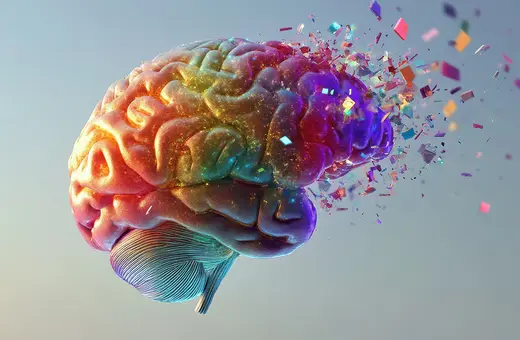It is commonly believed that there is a mind-body problem because we can give an explanation of matter but not of the mind. But according to John Collins, we don’t understand matter either. Materialism was refuted by Newton in the 17th century, and the physicalism which has replaced it is not a substantive doctrine. There are gaps in our understanding of the mental – we still do not have a good theory of what the mind is – but after Newton, there is no ‘mind-body problem’.
Minds are problematic. We don’t quite know what they are. If one has a mind, let us agree, then one is sentient and sapient, able to be self-aware and to think and reason about things. But both of these qualities are opaque, not least because they have no apparent analogy in the non-mental world. What, exactly, does one need to add to a body to get a mind? How is a thing that is merely subject to physical laws self-aware and able to think about dinosaurs and the afterlife? This conundrum is invariably depicted in terms of there being a mind-body problem. I’ll try in what follows to give you reasons to think that this label is at best misleading. There are lots of mind problems and lots of body problems, but no mind-body problem, because there is no realm of bodies in some general sense from which minds are excluded. Before you call for an intervention, let me explain.
A potted history
First, we need some history. The mind-body problem in its contemporary guise originates with Descartes in the 17th century. Here is a simplified version of how he reasoned. We are aware of minds (our own, at least) and bodies about us. If minds just are bodies, then they must share their properties, for there is just the one thing, and nothing can both have and lack a given property. For Descartes, however, bodies are in space and so divisible, but minds are not divisible and are not in space. Thus, minds are not bodies. Note that Descartes is not arguing that bodies cannot support mental properties, but more arguing that minds don’t have material properties such as being in space.
Descartes concluded that there are really two kinds of things (three, if we include God) with categorically distinct properties: minds and bodies. Two interaction problems arise: (i) how can bodies causally influence minds (toothache, say); and (ii) how can minds causally influence bodies (deciding to stand up, say). Following Descartes, a number of philosophers (the so-called ‘occasionalists’, such as Cordemoy, La Forge, and Malebranche) argued that these interaction problems were genuinely insuperable and concluded that the regular arrangement of the interaction of minds and bodies is not causal at all; indeed, the inertness of bodies means that there are no genuine causal relations at all, not even between bodies. One thing is merely an occasion for another, an occasion for God to make one thing follow something else. In effect, if we subtract God, we are left with a kind of scepticism: there is regularity, for sure, but no known cause (Hume made this move in the 18th century influenced by the occasionalists). Alternatively, there is causation, but this is our imposition of necessity upon phenomena rather than an independent necessity our minds are aware of (Kant).






















Join the conversation